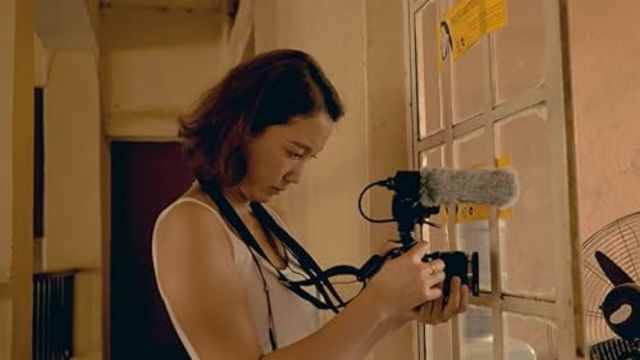Shiori Ito, a Japanese journalist and director of an Academy Award-nominated documentary about her own case of sexual assault, announced Thursday that she will reedit a portion of the film to answer claims that it contains unapproved material.
As per Japan Today, due to legal issues, the documentary “Black Box Diaries,” which had its world premiere at a film festival in January of last year, has not yet been shown in Japan but has been shown in more than 50 other nations and areas.
Attorneys, including those who defended Ito in a civil dispute related to the case, have claimed that by using unapproved video and audio, she violated a promise to protect sources.
Ito stated, “I sincerely apologize for causing harm,” in a statement issued Thursday by the Foreign Correspondents’ Club of Japan. She had been supposed to hold a news conference about her film, but she canceled because she was feeling ill.

Although the security camera footage was provided only for use in the trial, Ito acknowledged using it at the hotel where she was pulled by the alleged attacker, a former television reporter.
Without obtaining permission from the appropriate parties, she also used a phone recording of a chat with one of the former attorneys, as well as video of conversations with a detective and a taxi driver, for the movie.
“Every attempt has been taken to guarantee that people cannot be recognized in the most recent edition. “I will exert every effort to make the required adjustments for upcoming screenings overseas,” she continued.
After going public with the high-profile rape case, Ito became the first Japanese director to receive an Academy Award nomination for best documentary feature film, and he became a symbol of the #MeToo movement in Japan.
Legal challenges and changes are pending for Shiori Ito’s Black Box Diaries. For the most recent information on this case and other topics, visit our website.

Her investigative reporting on the 2015 incident served as the basis for the documentary.
The attorneys asked at a press conference in Tokyo on Thursday if international distributors knew the movie had legal issues and if the ethical and human rights concerns were taken into account while evaluating it.
Ito stated in the statement that she chose to include some of the unapproved content because she felt it was “essential” to portraying the reality of sexual violence and “the only visual proof,” in an effort to put the public interest first.
Ito reportedly met the alleged attacker for dinner in April 2015, and after losing consciousness, she complained to the police that he had sexually attacked her in the hotel room.
Ito won a damages action against the reporter after the Supreme Court finalized a decision that ruled there had been sexual contact without consent, even though the Tokyo District Public Prosecutors Office chose not to prosecute him.






